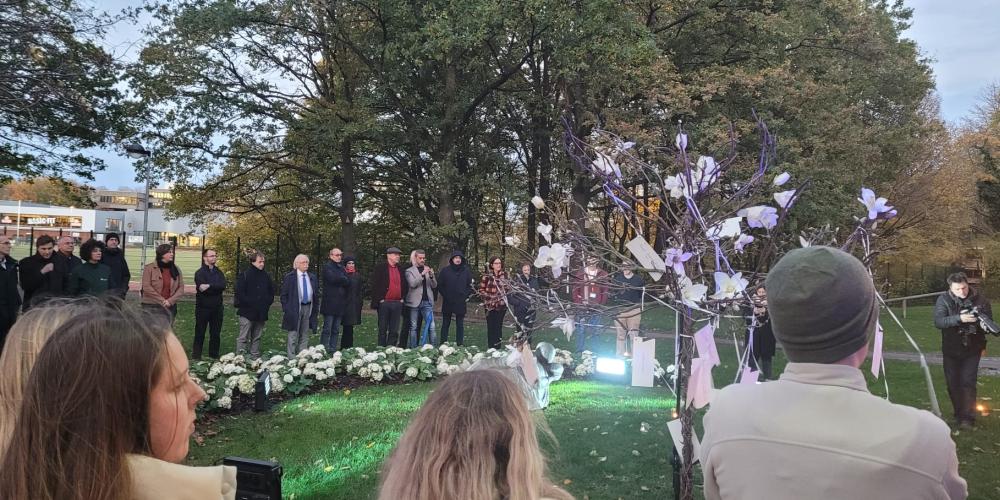
Everyone will have to deal with serious illness, death and loss at some point in their lives. These experiences affect our entire social environment, yet they are difficult topics to discuss in the workplace. VUB Compassionate Communities Centre of Expertise wants to do something about this.
In Belgium, about 110,000 people die every year. According to 2015 figures from the scientific journal PLOS ONE, more than half of people (58.4%) deal with loss resiliently provided they have the support of those around them. 35.2% need additional support from colleagues or volunteers, and 6.4% are at risk of complex grief problems and may need to be referred to mental health professionals.
Giving place
But caring for others is not just a task for health and social services. This is borne out by figures: 10% of all care goes through formal channels, the other 90% is done by family, friends, informal carers, neighbours, communities and volunteers. VUB employees will have to deal with situations of serious suffering at some point, like everyone. That is why VUB makes space for illness, grief and mourning in our community, inspired by the signed declaration of intent as a Compassionate University.
CoCo-VUB
We don’t always know how to deal with grief and distress. What can you say to someone? And if you say something, does it help? To gain more insight into this, Prof Dr Sarah Dury and Prof Dr Sara De Gieter of the VUB Compassionate Communities Centre of Expertise (CoCo-VUB) spoke about compassionate thinking in communities and working environments on 28 February. During this BRUCC lecture, they reflected on how this attitude can take shape in the workplace, what materials and support are available at VUB and what tools we can still implement.
Steps taken
VUB has already taken several steps to become a Compassionate University. For instance, the Monument of Consolation by sculptor Philip Aguirre was unveiled in 2019. Since then, a working group has been meeting monthly to agree practical actions in the field of awareness-raising to keep the topic open for discussion. They also organise the annual Moment of Compassion, where we reflect together on those who have lost a partner, friend or family member in the past year. And a handbook has been developed for guidance when a student or staff member dies.
Sharing expertise
CoCo-VUB also wants to build a network and share expertise. For example, Hogeschool West-Vlaanderen (HoWest) was inspired by VUB last year and became a Compassionate Hogeschool. To learn from each other, a learning network was started. With the resulting input and research, we can develop knowledge to change the current healthcare system, which still too often medicalises grief. Relevant expertise on many fronts is lacking for this purpose. CoCo-VUB brings together eight researcher teams from the medical, human and natural and engineering sciences and is reaching out to other sciences.
Following this article, do you need a listening ear or expert advice? If so, contact the Brussels University Consultation Centre (BRUCC).
Meer info about CoCo-VUB.